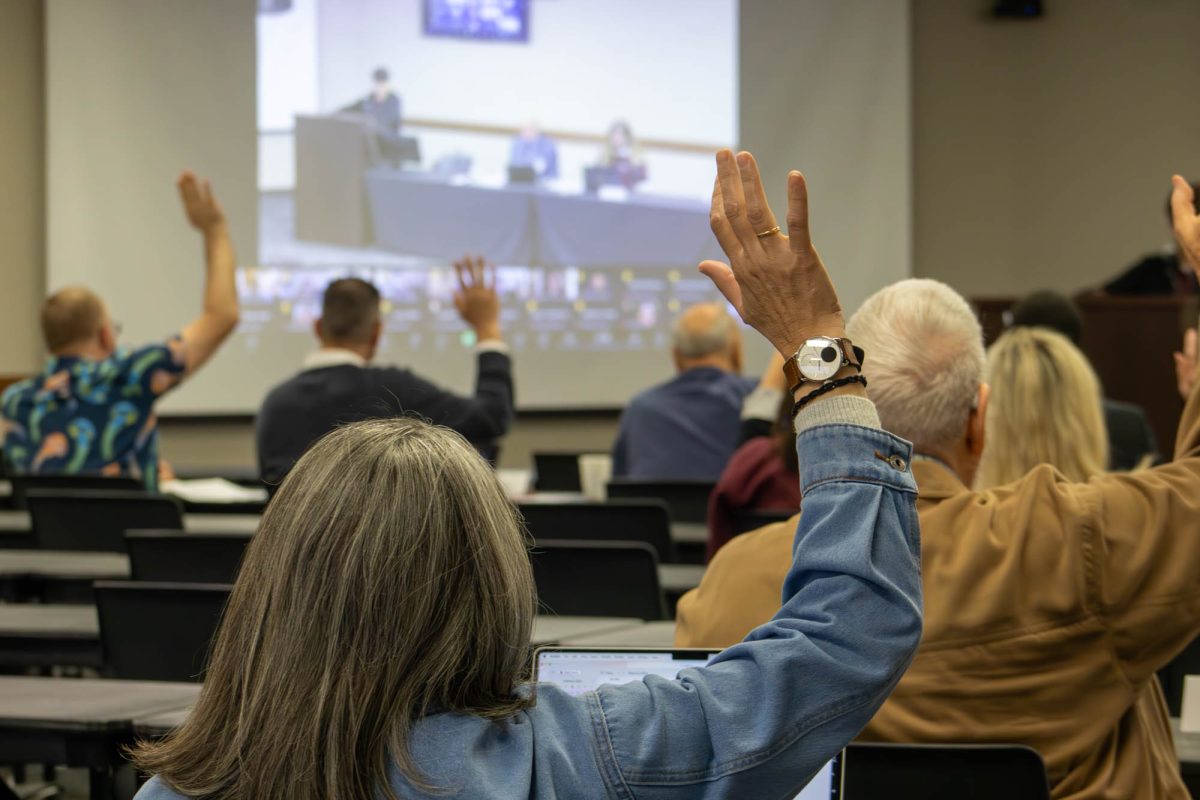Change is inevitable, especially in one’s sex life.
College students experience sex in a wild and vigorous environment, full of twists and turns that most thought were unimaginable. What they don’t realize is during those four years, give or take, students are just beginning a lifelong journey that never truly ends.
According to a Youth Risk Behavior Survey released by the Centers for Disease Control and Prevention, or CDC, less than 40 percent of high school students report being sexually active. This number is down nearly 20 percent in the last two decades.
Licensed professional counselor associate, Jason Anthony Adams, M.A., said the context of sexual activity in high school is essential in understanding the changes in trends as people move into a college lifestyle and beyond.
“There’s a relatively low number of experimentation before college, but then that number nearly doubles by the end of their freshman year at a university,” Adams said.
But even with the number of college students engaging in sexual behavior for the first time, another group — though technically the minority — still exists. For context, based on statistics on a national level, over 13,500 Texas A&M students have not yet had sex.
Susan Milstein, clinical assistant professor in A&M’s College of Education and Human Development, said this is because of unfounded beliefs or overly perpetuated exaggerations. Milstein, who focuses her expertise in the field of human sexuality, said the topic of sex no longer properly encapsulates the statistics it is meant to represent.
“The funny thing is: everyone kind of assumes that there’s a hookup culture in the college generation, and that’s just not the case,” Milstein said. “The research over the years is showing that [current-]generation college students aren’t going out and hooking up like crazy.”
Instead, many begin a period of “experimentation,” or a time in which an individual begins exploring their sexuality. As with any other topic related to sex, there is no one-size-fits-all descriptor that fully encompasses experimentation. Instead, this stage can include moving from oral sex to full intercourse for the first time, exploring situations with members of the same sex or actively researching different topics on the internet, among other possibilities.
More than anything, this “experimentation boom” in college is the result of thousands of students on any given campus experiencing freedom for the first time without pressure or supervision from their parents, Adams said.
“There are lots of reasons that research has found that people do this, and a lot of it just has to do with being out on their own, being free to make their own decisions and experimenting with life as an independent person,” Adams said.
Even so, this free-for-all can still carry negative implications, supply chain management junior Ian “Moose” Hankhouse said. This is because the large number of students experimenting with each other can create unhealthy expectations among people with different experiences.
“I feel like there is a moderate pressure as a college student to be sexually active,” Hankhouse said. “When you come into such a large student body … you will likely hear about people hooking up at parties, on Tinder or making out at Northgate, and sex is more widely and openly discussed. For those who weren’t sexually active in high school, this may lead to feelings of being behind.”
The atmosphere greatly changes after graduation, as the sex environment on a college campus is vastly different from that of a workplace. In most graduates’ jobs, they will be surrounded by people of all different ages and economic success levels, creating a new dynamic altogether.
The newfound presence of a steady income heightens these feelings, Milstein said. This financial freedom allows people to begin spending more money on alcohol at bars, gas to visit partners or contraceptives and sex toys for a more intense sexual experience. In this way, the experimentation stage takes on a new meaning entirely, she said.
“When you get out of college, there’s a different kind of experimentation. It’s not, ‘Oh, I’ve never had sex before, so let’s play around with it.’ It’s more like, ‘Let’s expand my boundaries and see what I haven’t tried yet,’” Milstein said. “You’re not going to hear about a lot of college kids who are running out and trying different kinks, but we do tend to see that happening more in the later 20s and early 30s because they’re more comfortable with their body and now they’re trying to push their boundaries even further.”
As a result, there becomes a disconnect between sex during college and sex after graduation.
Milstein said this discrepancy directly correlates with the fact that most college students have yet to find their full “identity” in the bedroom, which is something which continues to develop across an individual’s entire life.
“If I were to ask an 18-year-old what they’re looking for in a partner, they’re usually going to give a whole list of physical characteristics,” Milstein said. “But as people get older, they begin basing their preferences on what they’ve learned and what they’ve been through. Every experience we have starts to shape our next experience.”
Having experienced this phenomenon himself, Hankhouse said spending five semesters in college has been enough for him to begin reevaluating his sex life.
“A high school boy’s view on sex is most likely self-centered and inaccurate,” Hankhouse said. “I came into college having an idea of what I liked and was comfortable with, but this has evolved as I have engaged and explored with more partners. I would say that my views of sex have evolved.”
According to a study conducted in 2016 using data from the U.S. Census, over 20 percent of American adults have engaged in “consensual non-monogamy” at some point in their lives. However, as they further mature and develop in their relationships after college, most elect to move toward a permanent, one-partner system.
Once this occurs, people begin branching out even further beyond what they tried in college, Adams said.
“Usually, when people are in a monogamous relationship, they’re more inclined to participate in sexual activities or to do things sexually they would not normally consider,” Adams said.
Surprisingly, Milstein said, the change after college actually leads people to have more sex than they otherwise would.
“What we found is that people in committed relationships actually have more sex than single folks,” Milstein said. “The sexual satisfaction changes, but people tend to have more sex when they’re focused solely on one partner.”
Hankhouse, though, is not surprised by this statistic, as it falls in line with how he has come to view sex in a post-college landscape.
“While sex can be just physical, I still view it as a very intimate act that does change the nature of a relationship,” Hankhouse said. “I am of the belief that we never wholly stop sexually evolving as you try new things and continue to grow and age with your partner.”
So, the issue of differences in sexual activity between college students and working adults is entirely multifaceted, Milstein said. She also said the overarching topic of sex is complex, and experimentation and exploration takes place across a different timeline for everyone.
Regardless of struggles, Milstein said it is important for college students to take their sexual relationships one step at a time, while keeping in mind the dynamic will likely evolve further after graduation.
“You can graduate college before your brain is even fully developed,” Milstein said. “In college relationships, you’re going to fumble everything because everything is horribly awkward, everything is hard to do and everything is weird. But it gets better — different, but better.”
Experimentation to identification
December 15, 2021
Photo by Graphic by Melanie McBride
The sexual experiences college students have, take on different dynamics as these students transition into the workplace, which is largely due to the drastic change in environment they face.
0
Donate to The Battalion
$2790
$5000
Contributed
Our Goal
Your donation will support the student journalists of Texas A&M University - College Station. Your contribution will allow us to purchase equipment and cover our annual website hosting costs, in addition to paying freelance staffers for their work, travel costs for coverage and more!
More to Discover









